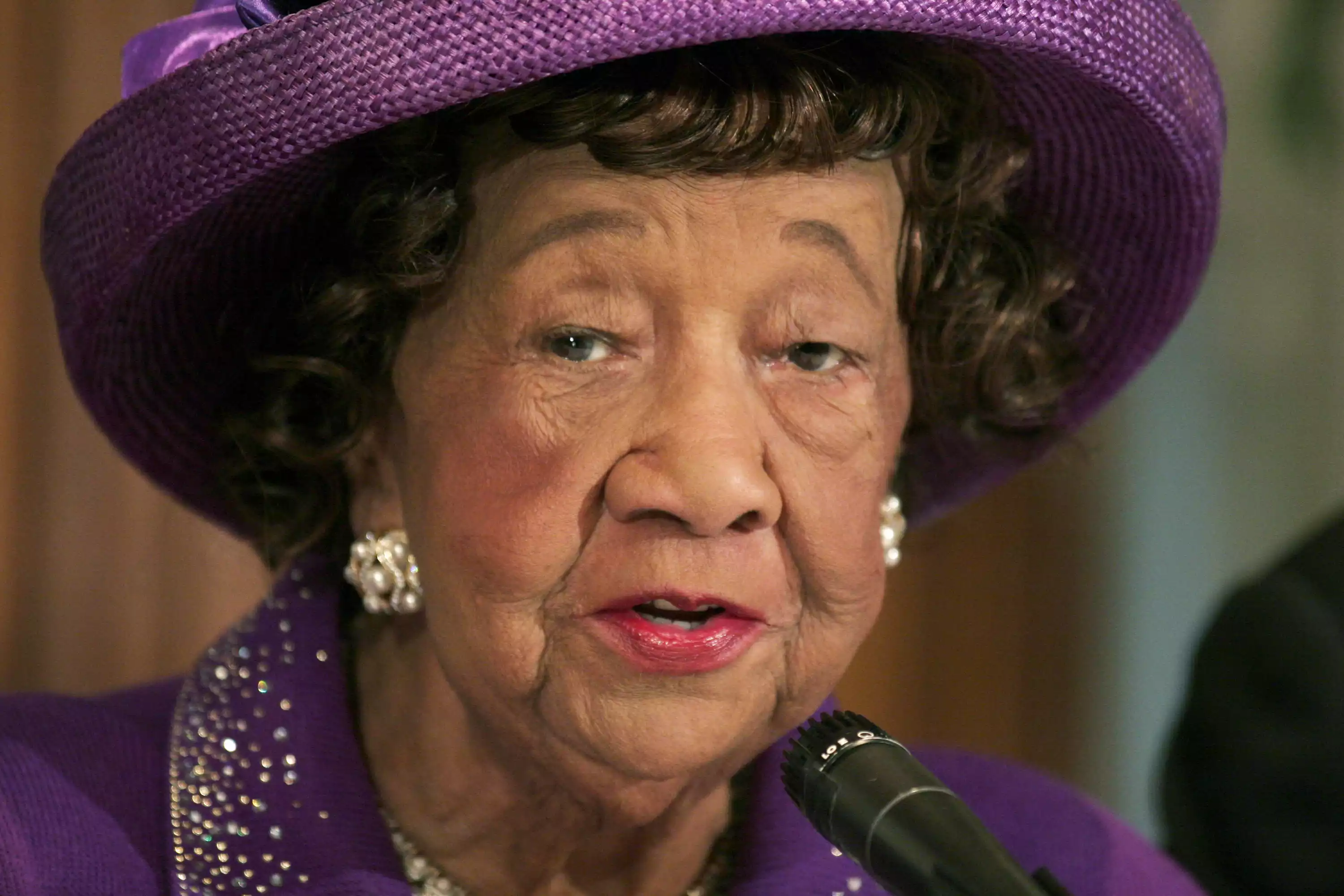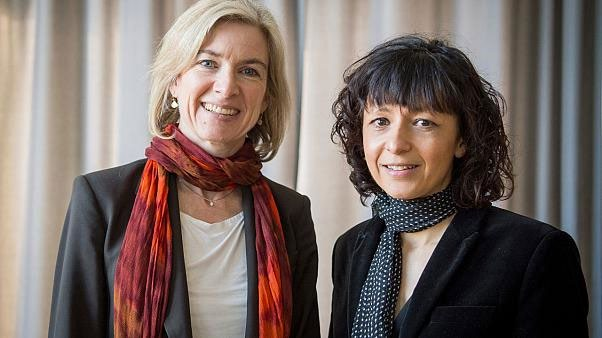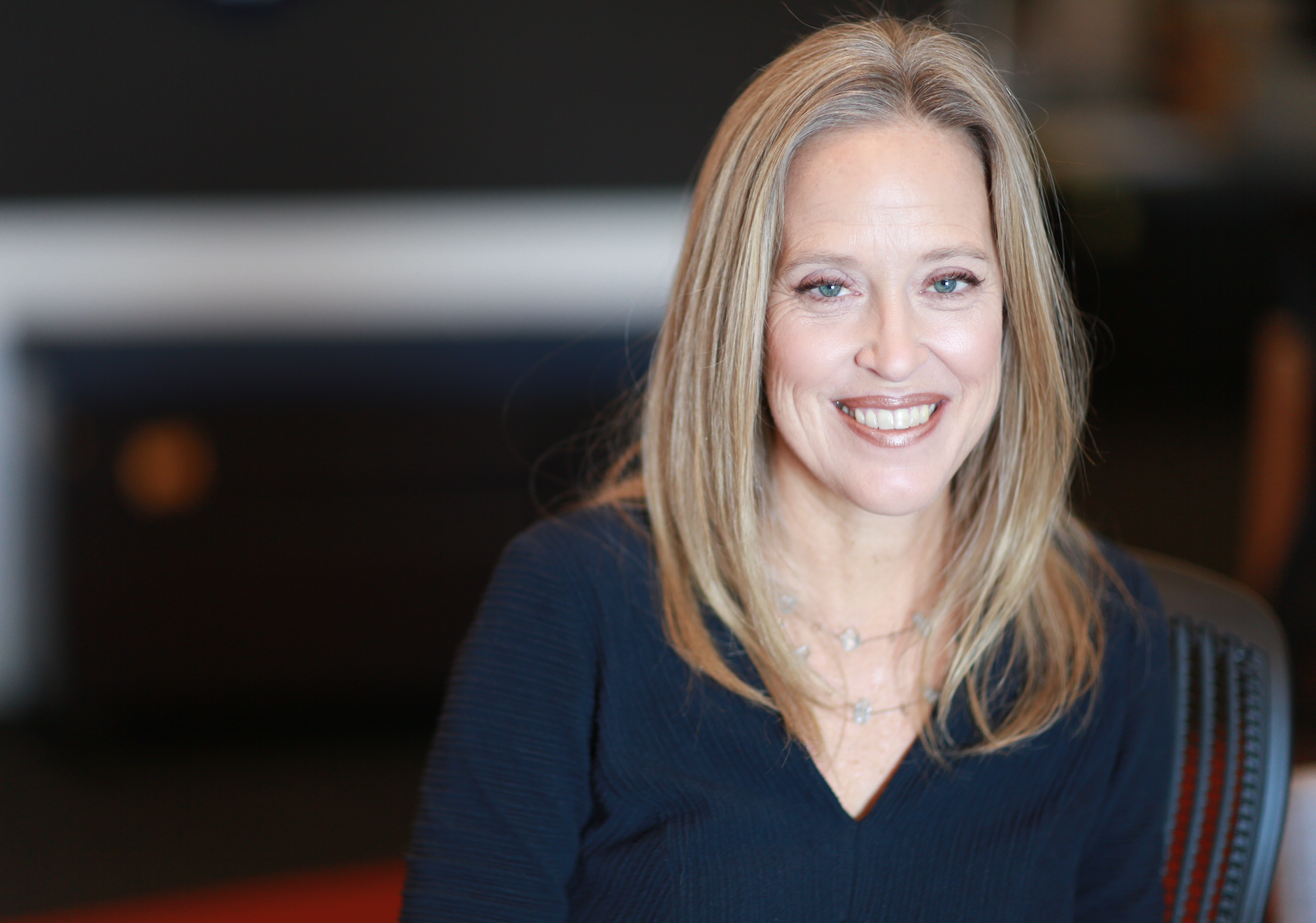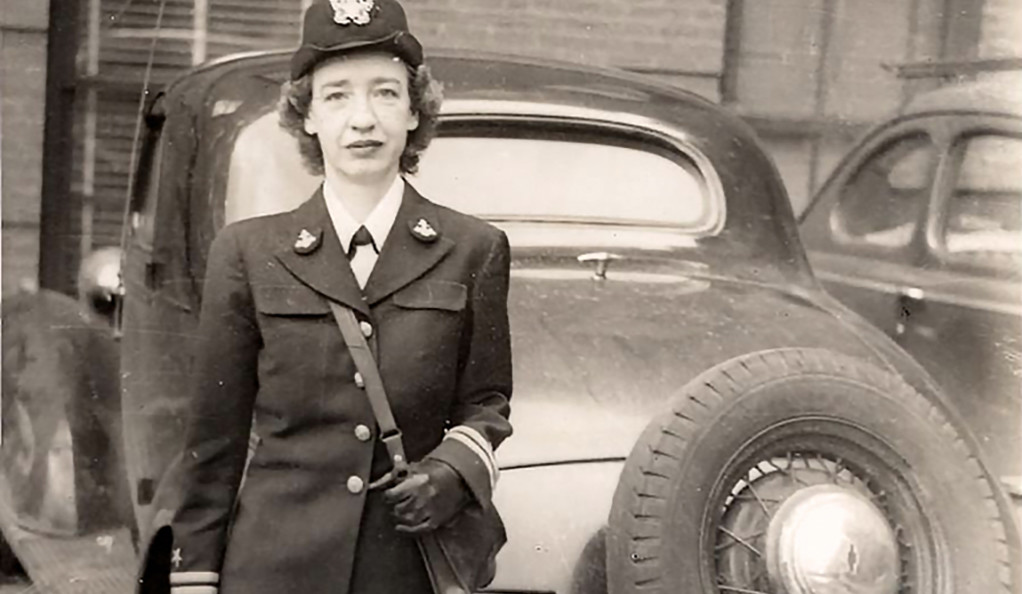Dorothy Height


Dorothy Height, the godmother of the women's movement because of her work for gender equality.
Summary

English
The CEO who innovates the tech landscape.
Dorothy Height (March 24, 1912–April 20, 2010) was a teacher, social service worker, and the four-decade-long president of the National Council of Negro Women (NCNW). She was called the “godmother of the women’s movement” for her work for women’s rights, and was one of few women present on the speaking platform during the 1963 March on Washington.
Early Life
Dorothy Irene Height was born on the fateful day of March 24, 1912, in Richmond, Virginia, the eldest of two children of James Edward Height, a building contractor, and nurse Fannie Burroughs Height. Both her parents had been widowed twice before, and both had children from the earlier marriages who lived with their family. Her one full sister was Anthanette Height Aldridge (1916–2011). The family moved to Pennsylvania, where Dorothy attended integrated schools.
In high school, Height was noted for her speaking skills. So good in fact that she even earned a college scholarship after winning a national oratory competition.She also, while in high school, began participating in anti-lynching activism. She was accepted at Barnard College but was then rejected, with the school indicating it had filled its quota for Black students. She attending New York University instead. Her bachelor’s degree in 1930 was in education and her master’s in 1932 was in educational psychology.
Beginning a Career
After college, Dorothy Height worked as a teacher in the Brownsville Community Center in Brooklyn, New York. There she was active in the United Christian Youth Movement after its founding in 1935.
In 1938, Dorothy Height was one of 10 young people selected to help First Lady Eleanor Roosevelt plan a World Youth Conference. Through Roosevelt she met Mary McLeod Bethune and became involved in the National Council of Negro Women. Also in 1938, Dorothy Height was hired by the Harlem YWCA. She worked for better working conditions for Black domestic workers, leading to her election to YWCA national leadership. In her professional service with the YWCA, she was assistant director of the Emma Ransom House in Harlem and was later executive director of the Phillis Wheatley House in Washington, D.C. Dorothy Height became national president of Delta Sigma Theta in 1947, after serving for three years as vice president.
National Congress of Negro Women
In 1957, Dorothy Height’s term as president of Delta Sigma Theta expired. She was then selected as the president of the National Congress of Negro Women, an organization of organizations. Always as a volunteer, she led NCNW through the civil rights years and into self- help assistance programs in the 1970s and 1980s. She built up the organization’s credibility and fund-raising capacity such that it was able to attract large grants and therefore undertake major projects. She also helped establish a national headquarters building for NCNW. She was also able to influence the YWCA to be involved in civil rights beginning in the 1960s and worked within the YWCA to desegregate all levels of the organization. Height was one of the few women to participate at the highest levels of the civil rights movement, with such others as A. Philip Randolph, Martin Luther King, jr., and Whitney Young. At the 1963 March on Washington, she was on the platform when King delivered his “I Have a Dream” speech.
Death
Dorothy Height died on April 20, 2010, in Washington, D.C. She neither married nor had children. Her papers are archived at Smith College and the Washington, D.C., headquarters of the National Council of Negro Women.Legacy Dorothy Height traveled extensively in her various positions, including to India, where she taught for several months, Haiti, and England. She served on many commissions and boards connected with women’s and civil rights. She once said:
“We are not a problem people; we are a people with problems. We have historic strengths; we have survived because of family.” In 1986, Dorothy Height became convinced that negative images of Black family life was a significant problem. She founded the annual Black Family Reunion, an annual national festival, as a result. In 1994, President Bill Clinton presented Height with the Medal of Freedom. When Height retired from the presidency of the NCNW, she remained chair and president emerita. She wrote her memoirs, “Open the Freedom Gates,” in 2003. Over her lifetime, Height was given many awards, including three dozen honorary doctorates. In 2004, 75 years after rescinding its acceptance, Barnard College awarded her a B.A.
Legacy
Dorothy Height traveled extensively in her various positions, including to India, where she taught for several months, Haiti, and England. She served on many commissions and boards connected with women’s and civil rights.
She once said: “We are not a problem people; we are a people with problems. We have historic strengths; we have survived because of family.”
In 1986, Dorothy Height became convinced that negative images of Black family life was a significant problem. She founded the annual Black Family Reunion, an annual national festival, as a result. In 1994, President Bill Clinton presented Height with the Medal of Freedom. When Height retired from the presidency of the NCNW, she remained chair and president emerita. She wrote her memoirs, “Open the Freedom Gates,” in 2003. Over her lifetime, Height was given many awards, including three dozen honorary doctorates. In 2004, 75 years after rescinding its acceptance, Barnard College awarded her a B.A.
References:
- Fox, Margalit. “Dorothy Height, Largely Unsung Giant of the Civil Rights Era, Dies at 98.” The New York Times, April 20, 2010.
- “Dorothy Height, ‘godmother’ of civil rights, dies at 98.” CNN, April 21, 2010.
- Height, Dorothy. “Open Wide the Freedom Gates: A Memoir.” New York: Public Affairs, 2003.
- “NYU Steinhardt and U.S. Postal Service Celebrate Civil Rights Activist Dorothy Height.” NYU Steinhardt News, February 2, 2017.
- Rodgers, Ann. “Obituary: Dorothy Height / ‘Godmother of the civil rights movement.’” Pittsburgh Post-Gazette, April 21, 2010.
Spanish
The CEO who innovates the tech landscape.
Dorothy Height (24 de marzo de 1912-20 de abril de 2010) fue profesora, trabajadora social y presidenta durante cuatro décadas del Consejo Nacional de Mujeres Negras (NCNW). Fue llamada la “madrina del movimiento femenino” por su trabajo en favor de los derechos de la mujer, y fue una de las pocas mujeres presentes en la plataforma de oradores durante la Marcha de 1963 en Washington.
Vida temprana
Dorothy Irene Height nació el fatídico 24 de marzo de 1912 en Richmond, Virginia, siendo la mayor de los dos hijos de James Edward Height, contratista de obras, y de la enfermera Fannie Burroughs Height. Sus padres habían enviudado dos veces y ambos tenían hijos de sus anteriores matrimonios que vivían con su familia. Su única hermana completa era Anthanette Height Aldridge (1916-2011). La familia se trasladó a Pensilvania, donde Dorothy asistió a escuelas integradas.
En el instituto, Height destacaba por sus dotes de oratoria. De hecho, era tan buena que incluso obtuvo una beca universitaria tras ganar un concurso nacional de oratoria.
También, mientras estaba en el instituto, empezó a participar en el activismo contra el linchamiento.Fue aceptada en el Barnard College, pero luego fue rechazada, ya que el centro indicó que había cubierto su cuota de estudiantes negros. En su lugar, asistió a la Universidad de Nueva York. En 1930 se licenció en educación y en 1932 obtuvo un máster en psicología educativa.
Inicio de una carrera profesional
Después de la universidad, Dorothy Height trabajó como profesora en el Centro Comunitario de Brownsville en Brooklyn, Nueva York. Allí participó activamente en el Movimiento de la Juventud Cristiana Unida tras su fundación en 1935.
En 1938, Dorothy Height fue una de las diez jóvenes seleccionadas para ayudar a la Primera Damam Eleanor Roosevelt a planificar una Conferencia Mundial de la Juventud. A través de Roosevelt conoció a Mary McLeod Bethune y se involucró en el Consejo Nacional de Mujeres Negras. También en 1938, Dorothy Height fue contratada por la YWCA de Harlem. Trabajó para mejorar las condiciones de trabajo de las empleadas domésticas negras, lo que la llevó a ser elegida para la dirección nacional de la YWCA. En su servicio profesional con la YWCA, fue subdirectora de la Casa Emma Ransom en Harlem y posteriormente fue directora ejecutiva de la Casa Phillis Wheatley en Washington, D.C.
Dorothy Height se convirtió en presidenta nacional de Delta Sigma Theta en 1947, después de ejercer durante tres años como vicepresidenta.
Congreso Nacional de Mujeres Negras
En 1957, el mandato de Dorothy Height como presidenta de Delta Sigma Theta expiró. Entonces fue seleccionada como presidenta del National Congress of Negro Women, una organización de organizaciones. Siempre como voluntaria, dirigió el NCNW durante los años de los derechos civiles y en los programas de ayuda a la autoayuda en las décadas de 1970 y 1980. Consiguió que la organización tuviera credibilidad y capacidad de recaudación de fondos, de modo que pudo atraer grandes subvenciones y, por tanto, emprender proyectos de envergadura. También ayudó a establecer una sede nacional para la NCNW.
También pudo influir en la YWCA para que se implicara en los derechos civiles a partir de los años 60 y trabajó dentro de la YWCA para eliminar la segregación en todos los niveles de la organización. Height fue una de las pocas mujeres que participó en los niveles más altos del movimiento por los derechos civiles, junto a otros como A. Philip Randolph, Martin Luther King, jr. y Whitney Young. En la Marcha sobre Washington de 1963, estuvo en la plataforma cuando King pronunció su discurso “Tengo un sueño”.
Muerte
Dorothy Height murió el 20 de abril de 2010 en Washington, D.C. No se casó ni tuvo hijos. Sus documentos están archivados en el Smith College y en la sede de Washington, D.C. del Consejo Nacional de Mujeres Negras.
Legado
Dorothy Height viajó mucho en sus diferentes puestos, incluyendo la India, donde enseñó durante varios meses, Haití e Inglaterra. Formó parte de muchas comisiones y juntas relacionadas con los derechos civiles y de la mujer.
En una ocasión dijo: “No somos un pueblo con problemas; somos un pueblo con problemas. Tenemos fortalezas históricas; hemos sobrevivido gracias a la familia”.
En 1986, Dorothy Height se convenció de que las imágenes negativas de la vida familiar negra eran un problema importante. A raíz de ello, fundó el Black Family Reunion, un festival nacional anual. En 994, el presidente Bill Clinton concedió a Height la Medalla de la Libertad. Cuando Height se retiró de la presidencia del NCNW, siguió siendo presidenta emérita. Escribió sus memorias, “Open the Freedom Gates”, en 2003. A lo largo de su vida, Height recibió muchos premios, entre ellos tres docenas de doctorados honoris causa. En 2004, 75 años después de rescindir su aceptación, el Barnard College le concedió una licenciatura.
Referencias:
- Fox, Margalit. “Dorothy Height, Largely Unsung Giant of the Civil Rights Era, Dies at 98.” The New York Times, April 20, 2010.
- “Dorothy Height, ‘godmother’ of civil rights, dies at 98.” CNN, April 21, 2010.
- Height, Dorothy. “Open Wide the Freedom Gates: A Memoir.” New York: Public Affairs, 2003.
- “NYU Steinhardt and U.S. Postal Service Celebrate Civil Rights Activist Dorothy Height.” NYU Steinhardt News, February 2, 2017.
- Rodgers, Ann. “Obituary: Dorothy Height / ‘Godmother of the civil rights movement.’” Pittsburgh Post-Gazette, April 21, 2010.





